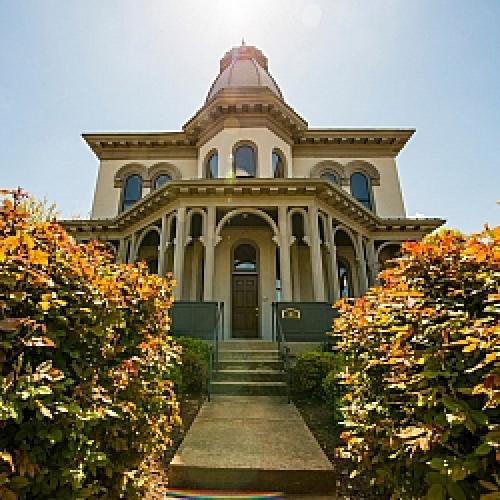FILTERS
Facility Amenities
Treatment and Services Offered
Languages offered
Accepted age groups
Insurance Providers
| Prev |
You may also want to try a center in another location:
Looking to Find a Rehab Center in Missouri?
Residential treatment provides personalized intensive treatment options for those experiencing the effects of mental health conditions such as addiction, disordered eating, and depression. Positive mental health outcomes are obtained from both long- and short-term treatment programs. Though each residential facility will have slightly different styles of mental health treatment, the fundamental principles that aim to promote healing and lasting relief remain the same. These include:
- Individualized goals established to facilitate growth one step at a time.
- An informal support structure that is woven into daily life as routines and peer support help bring stability to residents.
- The opportunity to contribute to the residential community, which can help increase a person’s self-esteem.
- Meaningful activities that improve quality of life for residents and teach them new skills to cope and/or overcome challenges.
Mental Health Care in Missouri
Missouri earned an overall well-being ranking of 43rd from the 2013 edition of the Gallup-Healthways Well-Being Index when compared to other states. The state ranked in the fourth quintile for basic access (32nd) and physical health (38th), and the fifth quintile for work environment (41st), life evaluation (41st), emotional health (46th), and healthy behaviors (46th). The communities of Fayetteville, Springdale, and Rogers scored the highest overall ratings within the state. Meanwhile, Kansas City had the highest ranking for emotional health and St. Louis had the highest ranking for access to basic services of all Missouri communities in 2013.
According to scores from Mental Health America's (MHA) Parity or Disparity survey conducted in 2014, approximately 855,000 adults in Missouri experience some form of mental health issue. Roughly 367,000 adults (8%) in the state abuse or display dependence on alcohol or illicit drugs, 178,000 adults (4%) have had serious ,thoughts of committing suicide, and more than 30,000 youth (6%) in the state face substance abuse challenges. After evaluating all 50 states and the District of Columbia across 15 mental health care measures, MHA gave the state of Missouri an overall rank of 22.
Missouri Census Information
Relocating to a new state for treatment can be stressful. To ease your transition, it can be helpful to learn about the state’s population before moving. In Missouri, the population totals approximately 6 million people. People under the age of 18 make up 23% of the total number of residents, with people 65 years of age or older representing an additional 15%. Roughly 88% of residents aged 25 or older have graduated from high school, and 26% have earned a bachelor's degree or higher. An estimated 480,000 military veterans live in Missouri.
References:
- Gallup-Healthways Well-Being Index. (2013). Missouri. Retrieved from http://cdn2.hubspot.net/hub/162029/file-624668448-pdf/WBI2013/Missouri_2013_State_Report.pdf?t=1418935567368
- Mental Health America. (2014). Parity or disparity: The state of mental health in America, 2015. Retrieved from http://www.mentalhealthamerica.net/sites/default/files/Parity%20or%20Disparity%202015%20Report.pdf
- Missouri Department of Mental Health. (n.d.). About the department of mental health. Retrieved from http://dmh.mo.gov/about/
- United States Census Bureau. (n.d.). State & county quickfacts: Missouri. Retrieved from http://quickfacts.census.gov/qfd/states/29000.html









